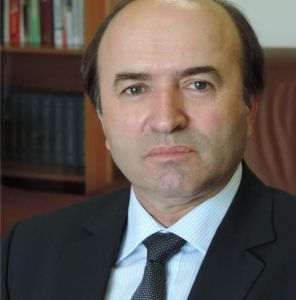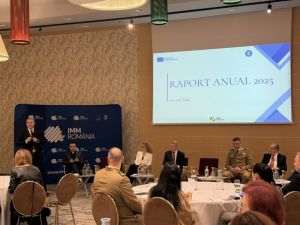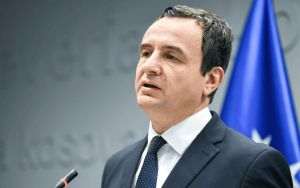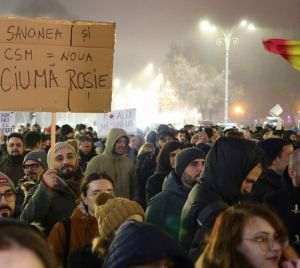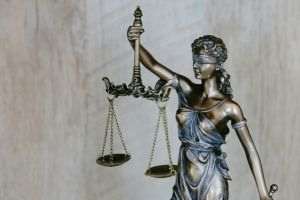The second day of the European People's Party (EPP) Congress in Bucharest concluded with the confirmation of Ursula von der Leyen as the EPP candidate for the position of President of the European Commission, after two days of debates on various topics such as the war in Ukraine, Romania's accession to the Schengen area, and the confirmation of the political program of the European political family. Ursula von der Leyen's candidacy was approved with 400 votes in favor and 89 votes against, with ten votes being invalidated. "We all know that our Union is the most precious thing we must preserve and develop for future generations. That's what we're fighting for. Our record shows that Europe has stood firm in the most difficult circumstances and we have laid the foundations for a successful future. Now we must approach the next steps with unity and full focus. And that's why I am running for a new mandate at the helm of the European Commission," said Von der Leyen following the vote. The President of the European Commission added: "We stand by Ukraine and support its future steps towards Europe, because it is the only way we can preserve the security and prosperity of the European Union. And it is the right way to convey to autocrats in this world that we will defend our democracies and fight for our values. We want to maintain a strong and safe, peaceful and prosperous, democratic and united European Union. We must think of environmental protection, the economy, and energy as one. This creates good jobs, and we must invest significantly more effort in Europe's security. Citizens feel the risks to our European way of life, and we want to provide them with answers on how to maintain democracy, prosperity, and security. We have 90 more days, and I thank you again for the trust and support we have felt today and in the past weeks and months, for the weeks and months to come."
• Romania's accession to Schengen remains uncertain
Romania's accession to the Schengen area remains uncertain, despite the support shown by European leaders. Austria maintains its position against the expansion of the Schengen area, despite the fact that the Austrian leader, Karl Nehammer, did not address this issue in his speech at the EPP Congress. However, Nehammer later posted on X (Twitter) that Austria's position remains unchanged. In his post, Nehammer also talks about Austrian companies, stating that "they are heavily involved in Romania and create many thousands of jobs," but also about the fact that "many Romanian citizens work in nursing professions in Austria and support people in need of care." "Romania is an important partner for Austria. Our companies are heavily involved in Romania and create many thousands of jobs there. Many Romanian citizens work in nursing professions in Austria and support people in need of care. At the same time, we have also spoken very openly about Austria's objections to the rapid expansion of the Schengen area. Austria's position remains clear and unchanged: the Schengen system is not currently functioning, therefore it cannot be expanded," Nehammer wrote on X. In turn, the President of Romania, Klaus Iohannis, declared on Thursday at the Congress in Bucharest that he urges the leaders of the EPP to use the campaign for the European elections as an opportunity to revitalize liberalism in the face of autocracies that restrict human rights, stating that better communication of the advantages of EU membership is essential to counter disinformation and manipulation. "Welcome to Bucharest! I am glad to be together again and to see that you all convey optimism, determination, concern for the future, and involvement. That's what we need to shape projects together, united and in solidarity, to win the elections for the European Parliament, thus responding to the legitimate expectations of our citizens. The European People's Party remains the most important political force in Europe, and I am convinced that this Congress will reaffirm our democratic values that place freedom, the rule of law, and human dignity at the center. We are facing the most serious situation since World War II. Just a few hundred kilometers from here, our neighbors are giving their lives to protect their families and defend their country from invaders who commit unimaginable atrocities. Ukrainians are in the trenches and depend on our help, and we, Europeans, must not tire in our effort to support them with all the assistance they need. For us, it is not only about the sovereignty of a people but also about the lives of people who are forced to fight in a conflict they did not start. We also have the responsibility to ensure our citizens that they are protected, because only in a climate of stability and security can our economies develop and prosper, and people can lead a better life," said Iohannis in his speech. The President also stated that Europe is a continent of peace and that the future of Ukraine, Moldova, and Georgia lies in the European Union. He affirmed that by joining these countries, the security of the European Union will be improved, and trust between strategic partners in the region will increase. "Its transformative power and ability to unite countries and peoples around EU values and principles, for the benefit of all, can never be underestimated. The Republic of Moldova, Ukraine, and Georgia are an integral part of the European Union, and their future lies in the Union. Likewise, the future of the Western Balkans. Our partners have made incredible progress. The citizens of these countries believe in the European Union and want to be part of the European family - that's why we must not disappoint them. The European Union and NATO are not in competition. However, this complex context in which we find ourselves brings an additional political risk, a crisis of confidence in European institutions, caused by the increasing distance between the political class and European citizens. Let's reconnect with our citizens; they are the ones who give legitimacy to the political act. Let's listen to them carefully, let's make sure that before coming up with electoral projects, we know what the real concerns of our citizens are. For this, the European political class must show maturity. The most effective method of political consulting is to pay attention to people's emotions and expectations," added Klaus Iohannis. In conclusion, the President of Romania warned against the nationalist current that is expanding in Europe, accusing this current of having a toxic potential capable of destroying European principles: "I am referring, of course, to extremism, in all its forms, from blatant nationalism to revisionist tendencies that, unfortunately, are increasingly manifesting themselves on our continent. After all, what is the European Union? 27 states that have voluntarily and convictionally adhered to the same set of principles, which share the same values and want to protect the level of well-being achieved thanks to the European project. The European Union is attractive precisely because its fundamental values allow and facilitate a high quality of life. And precisely for this reason, there are some who wish for this project to fail because it offers what autocracies and other undemocratic systems refuse to their citizens - freedom of movement, free trade, protection of fundamental rights, justice, and the rule of law. The campaign for the European Parliament elections is approaching rapidly. People will be bombarded with all sorts of offers and promises. Many of you present here will run for a mandate as a Member of the European Parliament and will engage in debates with eurosceptics and other dissatisfied individuals who challenge our European project. You can ask them directly: "What is your alternative to a project that has brought over 50 years of peace and prosperity?' And you will immediately see how their entire scaffolding collapses because the alternative of these loud, very vocal individuals is a bleak one, of resentments and national selfishness, which has caused humanitarian disasters, conflicts, and fratricidal European wars," Klaus Iohannis added.







